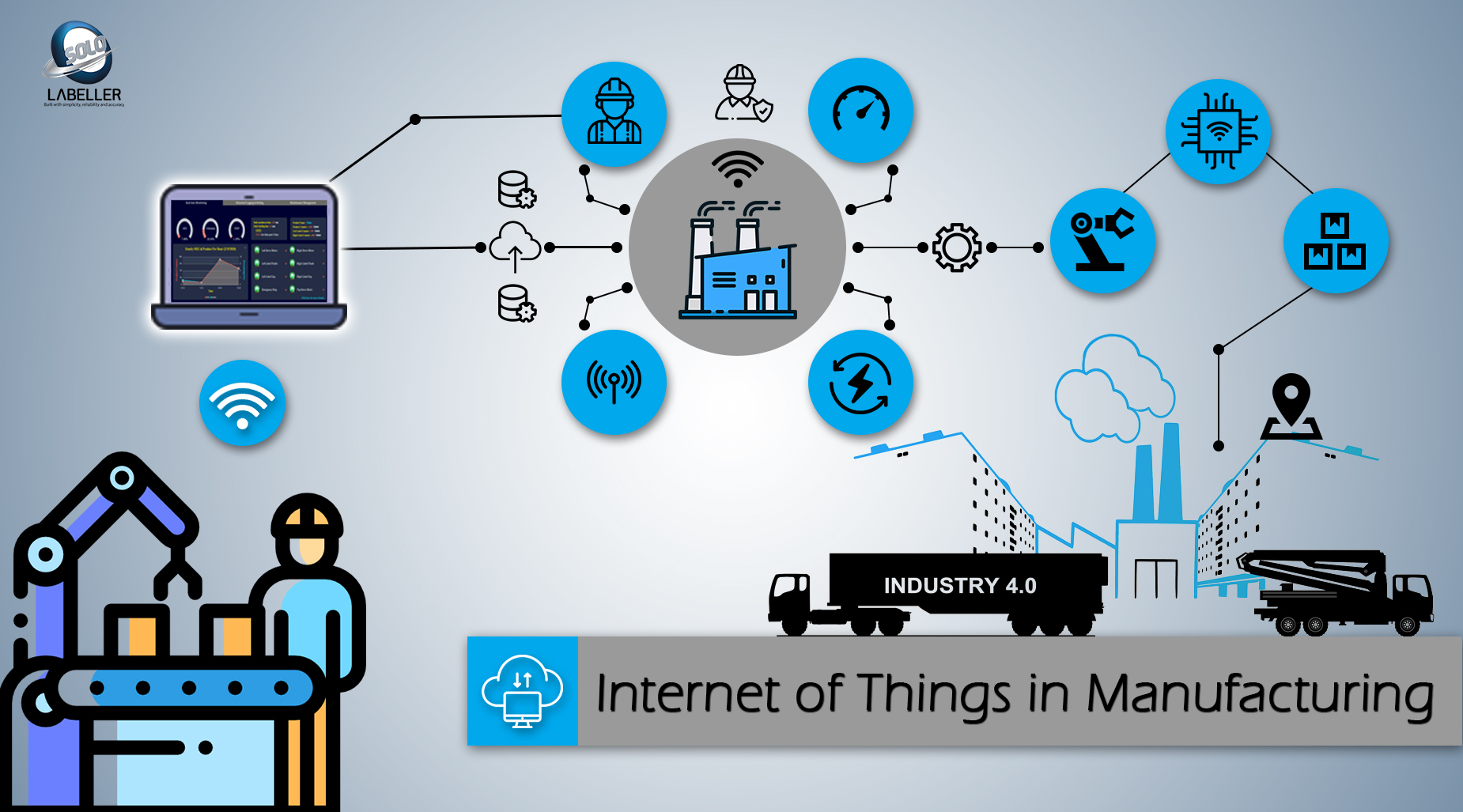
IIoT (Internet of Things) Vs. IoT (Internet of Things)
IoT is commonly seen in general consumer-level devices ranging from wearables like fitbits, smart home devices whilst IIoT is specifically related to the manufacturing, oil& gas, healthcare and logistic industry with focus on the networking of machines (machine-to-machine) and seamless process chains. It refers to interconnected sensors, machines, and other devices networked together with computers’ industrial applications. The sensors in IIoT are used to collect critical production data in combination with cloud technology to turn this data into valuable insights that could help to improve & optimise the existing work practices and business processes as well as innovation in workplace.
Devices, Sensors, Digitalisation & Big Data - Advantages of IIoT in manufacturing industry
1. Process Optimisation through Remote Monitoring.
With IIoT, machines are inter-connected and allows transmit or exchange of operational information in centralise network, making it capable for factory manager to access the machine information and status remotely. This enables optimization work in the production and gives advantages for automation process.
2. Reduce Down Time.
The use of IIoT sensors allows more accurate predictions of machine condition and more efficient maintenance. Many essential machine components in production line are designed to function within certain precision and vibration ranges; the sensors are able to actively monitor on parts’ status and condition and notify for maintenance when it deviates from the pre-set parameters, which is useful to prevent the major machine downtime frequency.
3. Improve Operational Efficiency.
IIoT enables production data to be captured and displayed in real time basis, allowing for more accurate data reporting and prediction for production capacity planning, thus improving the overall production productivity.
4. Inventory Management.
Inventory is tracked on real-time basis with IIoT application with every ins & outs across all the warehouse, production plant and distribution centres, effectively bring down the cost on inventory carrying and errors derived from inventory management. It also provides cross-channels visibility to manager on realistic estimation on material availability, and the arrival time of new materials.
5. Improved Safety.
IIoT applications can be used to improve safety at workplace. When paired with wearable smart devices, it allows monitoring on workers’ health parameters and risky activities during daily operation. Also, it could be used to improve safety issue in potentially hazardous environments. For instance, in oil and gas industry, IIoT is applied to monitor gas leakages as it moves through the pipe network.
6. Logistic & Supply Chain optimization.
The adoption of IIoT system allows real-time tracking on product and materials information when they move through the supply chain process. With the addition of RFID tags attached to inventory items and smart sensors installed at warehouse, it allows all parties involved to share the visibility on supply chain that allows for more accurate forecast on shipments arrival.
7. Cost Reduction.
The synergy created from optimised production process, greater inventory management, lower machine downtime and higher work efficiency enables manufacturers to bring down the monthly OPEX and focus on creating new source of revenue.









 BR 22163
BR 22163  US 10360
US 10360  AR 2882
AR 2882  AO 2541
AO 2541  MY 2304
MY 2304  DE 2003
DE 2003  EC 1473
EC 1473  RU 761
RU 761 

